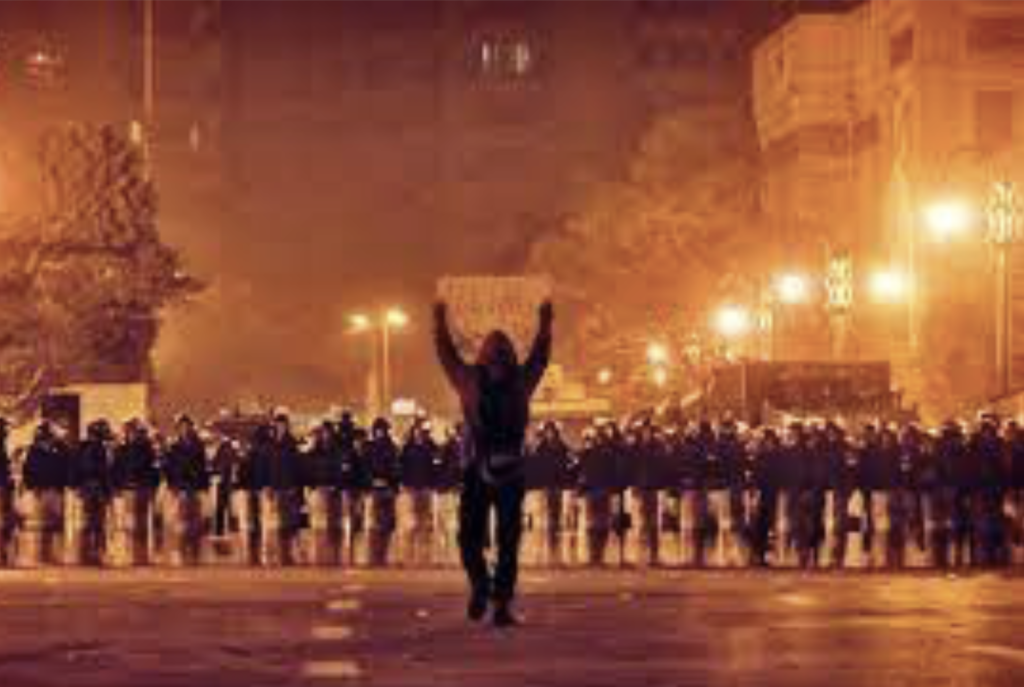The Book of Sleep: A Crash between Resistance and Dreaming

By: María Teresa Fidalgo-Azize / Arab America Contributing Writer
In a world built on holding attention and focusing our awareness, a world in which every moment can be captured, recorded and shared with others, in which every moment is material suitable for live broadcast- in a world like this, sleep is the last remaining place in which death can be encountered.
Haytham El Wardany, A Patch of Shadow
The Book of Sleep, an anthology of short essays and experimental prose and poetry written by Haytham El Wardany, inquires on the systematically incomprehensible realm of sleep by its nature of a world outside physical suffering. Witness the coup d’état in Egypt in 2011 and the conditions that led to the revolt, Haytham’s book parts from a more traditional memoir in its raconteur of events as it prioritizes the elusive activity of sleep over a fact-checked memory of a nation’s internal bleeding.
Philosophical and historical allusions to figures such as Walter Benjamin and Abu Yazid, Haytham initiates a dialogue with a past dismissive of linearity, much like his comprehension of sleep. Tyrannical fascist societies define one as a surplus activity, unadjusted to the rule of productivity and order. Amidst unconsciousness and dream panoramas, Haytham describes sleep as an ephemeral waking from what is believed to be unchangeable. The Book of Sleep pioneers a mode of writing regarding how truth- the national and the individual- is inattentive to a procedural nature when speaking of its history. The truth lies in the in-betweenness of closing one’s wide eyes shut.
Egypt 2011 Revolution- January 25, 2011- February 11, 20211
Influenced by massive widespread protests in Tunisia, the Egyptian people (secularist and political Islamist) united against impoverishing social conditions, including high unemployment and inflation. They demanded the ousting of President Hosni Mubarak, who had been in power since 1981 after the assassination of President Sadat. For 18 days, the Egyptian people from all parts of the country demanded changes to the constitution, an end to police brutality, and financial resolutions for the dire state of the Egyptian economy. On February 11, 2022, Vice President Oman Suleiman announced Mubarak’s resignation, fueled by massive demonstrations throughout urban Egypt, specifically Tahir Square in Cairo. After Mubarak stepped down, the Supreme Council of the Armed Forces held control of Egypt’s future, amending the constitution and hosting “democratic” elections. Over ten years, strife between the Muslim Brotherhood and the secular population has elapsed.
Conclusion: Muscle Memory of Found Loss
Only when the past returns to the sleeper, not as a pale witness to what is gone but as a force which generates present possibilities for what has passed away- only then will it become a past. The past is not the memory of what is gone but a fecund present of that which refuses to pass away. And so deliverance is attained: for the deliverance the past wants is the look which lends it new life.
Haytham El Wardany
Throughout The Book of Sleep, sporadic tales appear to be reshaped diary entries of the author’s experience in the early 2010 Egypt revolution, none written with journalistic precision as the author mentions how some characters were part of the revolution as national ghosts, not as living citizens. The simultaneity of the living and dead speaks of how Haytham continuously illustrates the relationship between sleep, death, and pastness. One where pastness refuses dismissal of its connection to the present and instead seeks participation in the present’s endless re-writing of truth.
The past is an active offering to the now. The Book of Sleep is sometimes confusing and riddled with intentioned conjectures that refuse straightforward clarity on what sleep is culturally esteemed to mean and how to belong to a nation wounded by violence. If seeking the joys and fears of a journey into being lost inside the clandestine spaces of the mind, The Book of Sleep is an essential compass before the sojourn of sleep.
Works Cited:
“Egypt Burning .” Al Jazeera English, 6 Feb. 2011, https://www.youtube.com/watch?v=w3FQXYdyHCg.
“Egypt Uprising of 2011.” Encyclopædia Britannica, Encyclopædia Britannica, Inc., 18 Jan. 2024,www.britannica.com/event/Egypt-Uprising-of-2011.
El Wardany, Haytham. (2020). The Book of Sleep. Translated by Robin Mager. Seagull Books.
Kirkpatrick, David D. “Army Ousts Egypt’s President; Morsi Is Taken Into Military Custody.” The New York Times, 13 July 2013, www.nytimes.com/2013/07/04/world/middleeast/egypt.html.
Staff, Al Jazeera. “What Happened during Egypt’s January 25 Revolution?” Al Jazeera, Al Jazeera, 25 Jan. 2023, www.aljazeera.com/news/2023/1/25/what-happened-during-egypts-january-25-revolution.
Check out our Blog here!








